Gymnopédie No. 1 – A Personal Essay
April 25, 2020
As my father, mother, sister and I walked into the small, crowded auditorium a little more than eleven years ago, I had already felt pressure building in my sinuses, but I ignored it and nervously watched my feet as they shuffled across the carpeted floor. We grabbed programs from the pile and roamed around for a few minutes until we found a couple of seats. Miss Olga, a dark-haired Russian lady in her mid-30s with a bit of an accent, welcomed the young performers and their families to the piano recital. While she spoke, I picked at the coarse red upholstery on the seat of my chair, reading my name at the top of the program sheet over and over: I was scheduled to perform first. Anxieties whooshed through my head like the low roaring of a thousand whispers. Miss Olga called me to the stage, but I mumbled that I didn’t want to perform. She turned red, and my mother insisted that I go.
As I stood up, I suddenly felt liquid dripping out of my nose. I ran my finger under it to wipe it away, and when I looked down I saw blood. My mother rummaged through her purse for a tissue. Miss Olga, looking a little flustered, announced the delay and came down to help. While blood ran down my nose, the pressure eased and the whispers that had filled my head faded: I was relieved that my spring allergies had saved me from having to face my fear of performing. For five minutes, my mom tried to help me stop the bleeding—but to no avail. My sister, sensing my relief to have an excuse, announced that she would go perform instead while I took care of the nosebleed.
Isabella walked up the stage to play a duet of the “Sleeping Beauty Waltz” with Miss Olga. When she played, her body danced with the music, synchronized with the movements of her teacher. The duet moved their bodies in shared choreography. Sitting there with my nose bleeding, I couldn’t imagine myself connecting with other people through music. To me, music felt like an exercise of playing the right notes at the right time and practicing until perfection. I didn’t appreciate the connections built with other people when you make music together.
My quiet and reserved demeanor contrasted with my sister’s sociability. While she enjoyed conversing with others, I adopted the principle of not speaking unless spoken to. When it came to discussing Isabella’s progressing illness, though, we both preferred not to speak at all.
I’ve learned that in music, silence carries as much weight as sound. All the whispers that I refused to hear during the recital and in the following years contributed to my experience just as much as the actual events: Why is she so much more outgoing than me? Why does she get more attention than me? How can she enjoy the music so much when she knows she’s so sick? Will she survive? I pushed these questions down, but the growing pressure of guilt and regret only built. A few years after I saw her dance with Miss Olga to the music of their duet, Isabella passed away. I thought the whispers would leave with her, but the silence only became more deafening.
Out of all the regrets about my relationship with my sister, one whispers louder than the rest. The doctors initially misdiagnosed Isabella three times, and when they finally diagnosed her with leukemia, they decided that she should have a stem cell transplant. They determined that my stem cells were a perfect match, so I became her first stem cell donor.
I remember feeling torn inside. Those same whispers of anxieties I had felt at the piano recital returned. The thought of pain terrified me, yet I felt an obligation to do my part. After they harvested my stem cells and I was regaining consciousness, those constant whispers in my mind temporarily ceased. I laid in the hospital bed, aware of the satisfying quiet in my mind.
But the doctors made a crucial mistake by assuming that the cancer was gone. They didn’t account for the possibility of the cancer passing through the blood-brain barrier. Their pride and arrogance wasted the best chance to save my sister. She needed a second transplant, and, even though I was a perfect match, my parents insisted that I not go through it again. My father, who was not a perfect match, donated his stem cells instead. Looking back, I often feel guilty because I know that if I had donated again, her immune system would have recovered faster and she wouldn’t have died of a lung infection after beating the leukemia.
As she was dying in the hospital bed, I was too afraid to say goodbye. I busied myself by coloring a wooden box that the nurses had given me earlier that day, but anxious whispers invaded my mind: You’re afraid to believe she’s dying. You should’ve treated her better. She was aware of your jealousy, yet she volunteered to perform first in your place at the recital—she let your parents give you unnecessary attention anyways—because she loved you. Did you even love her? I couldn’t bring myself to face the guilt. I only kissed her goodbye after her body was already cold.
Three years after my belated goodbye kiss, I convinced my mom to allow me to quit piano. It had felt purposeless to me, like a rote exercise. But another three years later, I felt what Isabella must have felt when she performed with Miss Olga, but with classical guitar. The guitar was my second chance with music, so I was determined to approach it properly this time. Technique wouldn’t be a boring aspect of music I have to maintain with rote exercises, but instead a tool for artistic expression.
At the time I began playing guitar, my dog, Gus, was dying of lung cancer. I felt like I was reliving the past. Before I found out he had a tumor, I never really spent much time with him or gave him much attention. He was originally my sister’s dog. Soon after she was diagnosed, Isabella wanted to get a boxer, so we drove to the Illinois-Iowa border to get him.
Seeing Gus made her happy. It helped normalize her life, but even that wasn’t perfect. Sometimes, when her immune system was compromised, my parents had to separate them. Gus spent a lot of time alone because we would sometimes be at the hospital for days at a time. We turned the radio on whenever we left so that he wouldn’t feel as lonely—always 98.7 WFMT, the classical music station, because my parents thought non-classical music sounded like unpleasant noise to animals.
Even though my dad insisted that Gus would be okay—that the tumor was probably benign—I got the feeling that my time left with him would be limited. I feared saying goodbye to him would leave me feeling heartbroken again, which compelled me to prevent the same regrets that had compounded my grief over Isabella. I spent my whole summer with Gus. We walked along the boardwalk by the zoo almost every day. I didn’t want to have regrets about my relationship with him and, given that he was my sister’s dog, I needed to care for him as she would have. And I soon learned that my intuition about the tumor turned out to be correct.
The day to say goodbye had come. My parents woke me in the early hours of the morning. In the car, I sat next to my pet of almost ten years, not knowing what to think. Soft whispers of thoughts and memories floated through my head as I looked outside and saw the city pass by—the streets still, silent with the serenity of the early morning. Though hearing my dog’s fast, shallow breaths pained me, I took comfort in the myriad memories I’d shared with him. At the stoplight, my father turned the radio to 98.7, and I laughed a little to myself. It was funny to think dogs preferred a certain kind of music like my parents claimed.
When I recognized Erik Satie’s Gymnopédie No. 1, I remembered that I’d heard the piece many times before and had thought it wasn’t much more than a bunch of ambient chords. But at that moment, those ethereal chords took a new meaning. The music and the darkness outside left me in the same satisfying quiet I enjoyed years before while regaining consciousness in my hospital bed. During those moments after Gus’ death—when I longed to scratch those furry ears, to watch him run around in the park, to play tug of war—I felt an urge to pick up the guitar, to feel my hands dance across the instrument to pour out harmonies of grief. I learned Gymnopédie No. 1, and it became a lament for my dog. I learned to express my anguish through the instrument, lent et douloureux, like Satie’s tempo marking.
I was determined not to take a loved one’s life for granted again. The guilt I felt with my sister’s death impelled me to care for the dog she left behind with the same love I wished I had shown her. God gave me a second chance with Gus, and our emotional connection––the compassion and empathy we had for each other—was my redemption.






































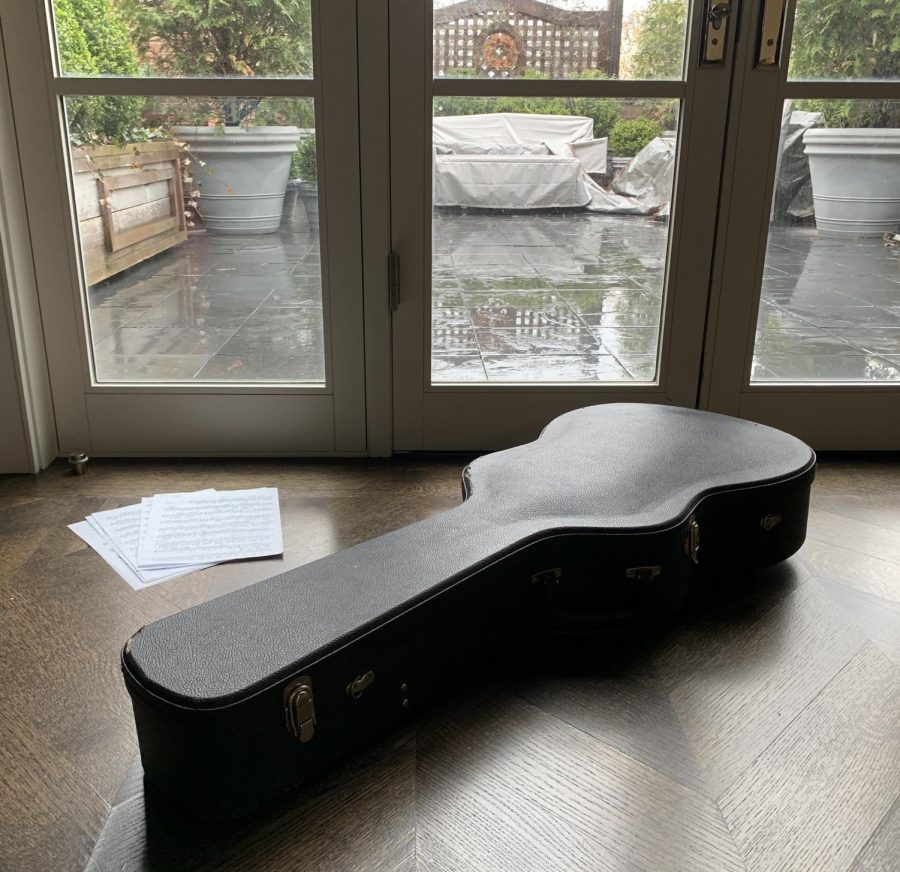
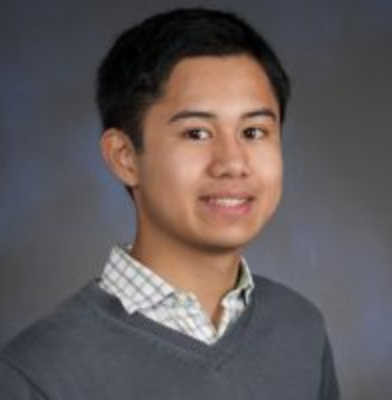
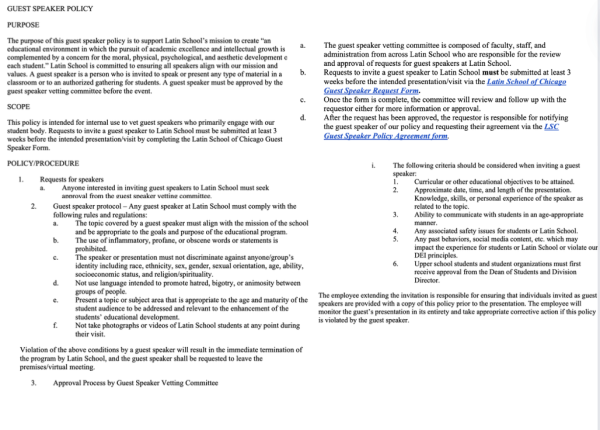
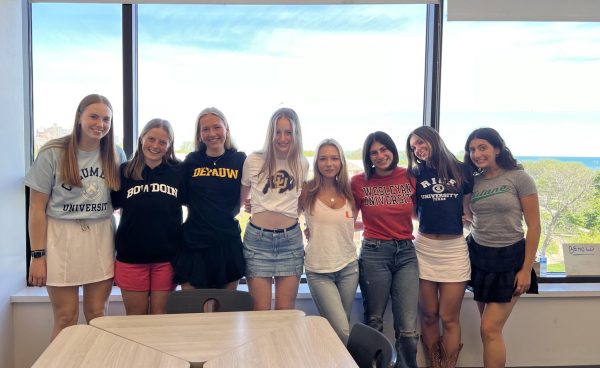
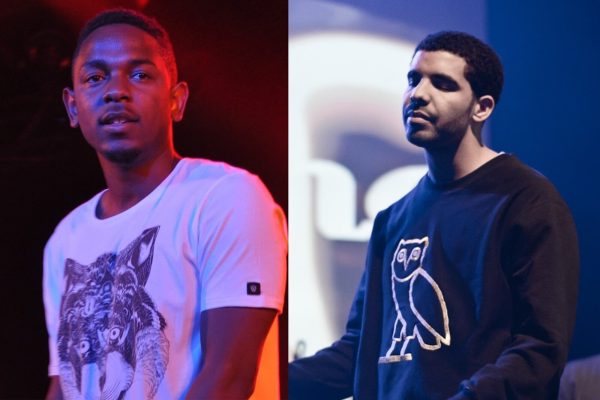
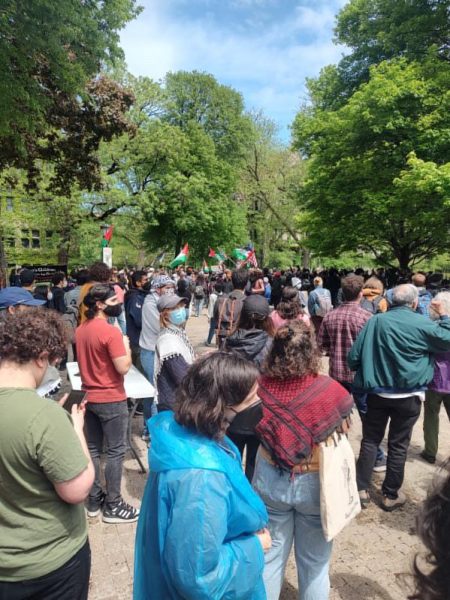

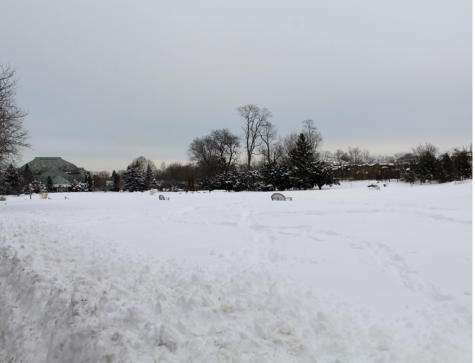

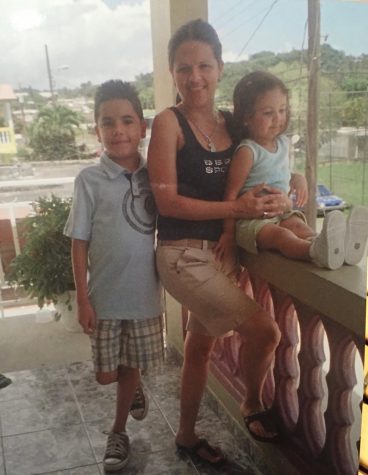


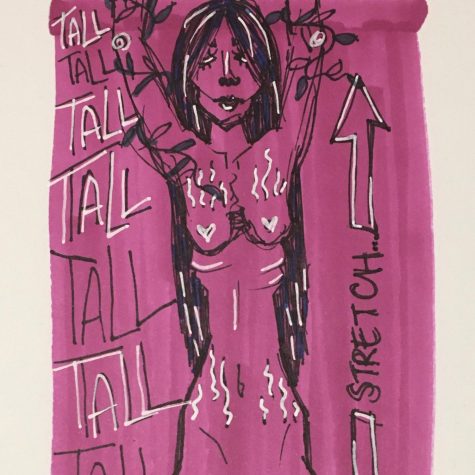
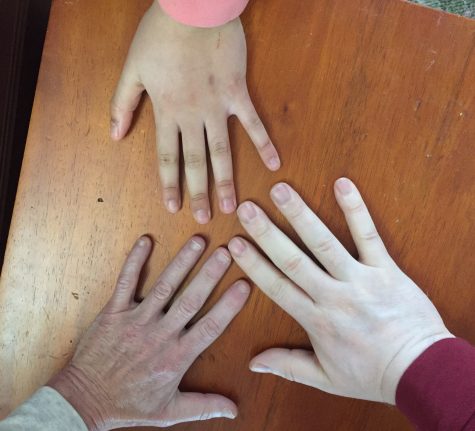

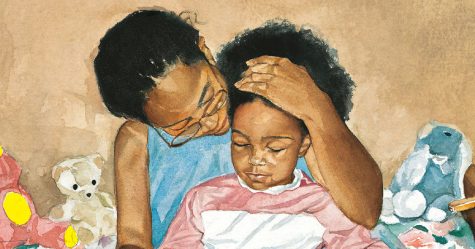
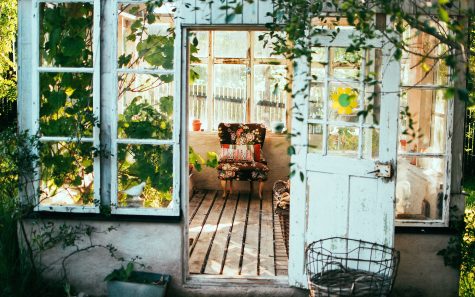

Antonio Feliciano y Pleyto • May 25, 2020 at 12:37 pm
Thank you all for your kind comments and for taking the time to read my story.
Arlene Szykowny • May 8, 2020 at 12:14 pm
As I read your beautiful story, I am reminded of certainly how fragile life is and how we are all here for a purpose. There was such raw honesty and love poured into your story that it was easy to feel your pain, confusion and love. To have this experience at such a young age seems unfair but you are such an amazing person that Gus and Isabelle are so alive in you. You are amazing in your appreciation for life, music and family. Some people never get there but your insight into life has made you who you are—truly special. Thank you Isabelle and Gus! Antonio, thank you for sharing your journey!
Sehar Dey-Kohli • Apr 27, 2020 at 12:24 pm
Antonio, thank you so much for sharing this. It’s written so beautifully and sincerely. Know that we’re so lucky to have you.
Ms. Wells • Apr 25, 2020 at 8:33 pm
This was such a beautifully written piece. Thank you for sharing your heart and reminding each of us to focus on capturing and cherishing moments with loved ones. This was a wonderful reminder of what is important during these uncertain times for us all! I will hug the ones I love a bit tighter today!
Jonathan Legendre • Apr 25, 2020 at 7:10 pm
Thank you for sharing this. I made the mistake (?) of reading the title and slipping on some headphones to listen to Satie while I read. It won’t ever be the same again.
Tejas Vadali • Apr 25, 2020 at 6:52 pm
Tony, I’ve read this essay easily a dozen times since you wrote it last year; it makes me cry every time. We’re incredibly lucky to have you in our community.
Peter Jones • Apr 25, 2020 at 6:38 pm
This is a stunning and heart-wrenching essay, Antonio. Thank you so much for sharing it with us.